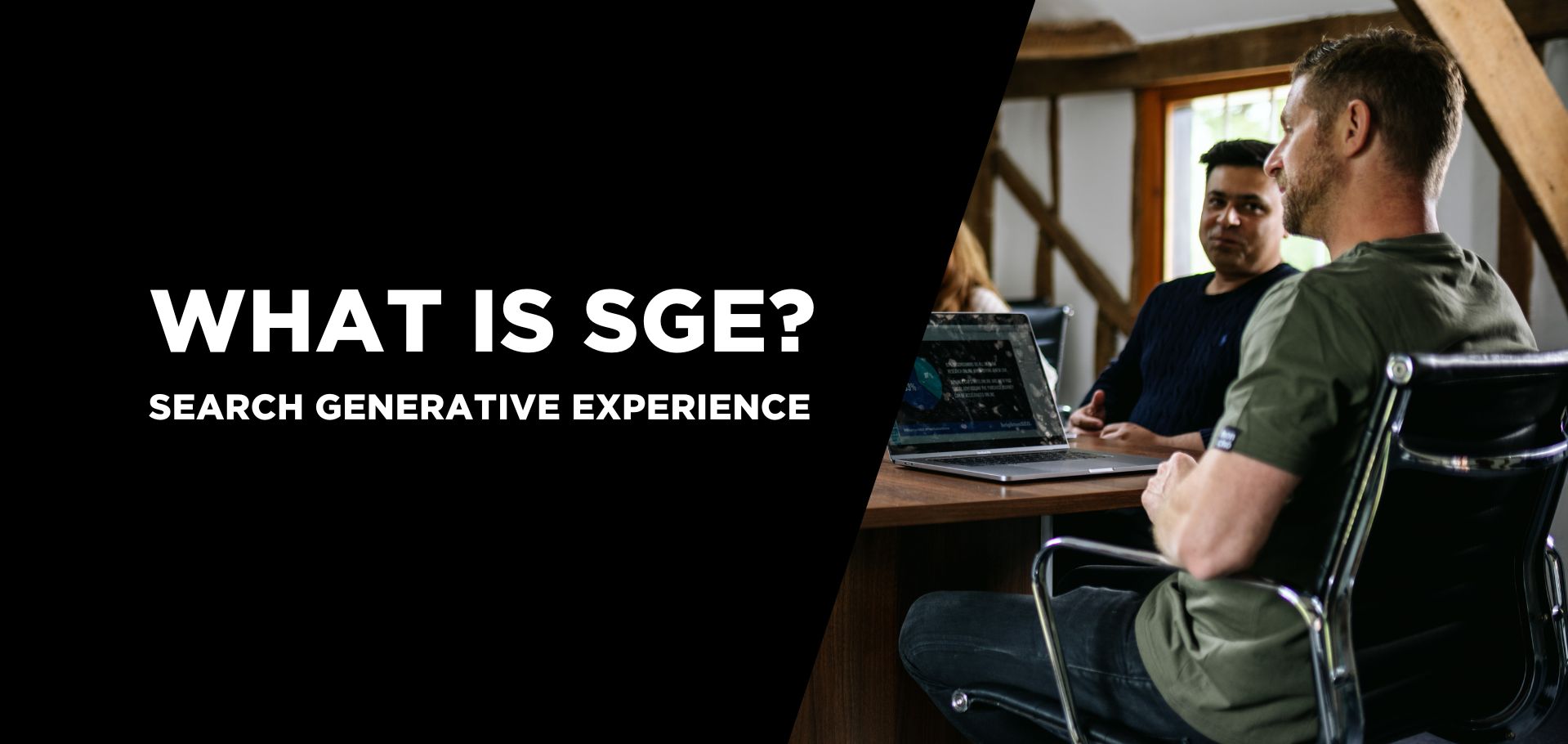2 min read
What is Google Search Generative Experience? (SGE)
What is Google SGE? Think of Google SGE as your helpful buddy on the search results page. Instead of making you click on different websites, it pulls...
 How does link building work to get your website ranking higher in Google? Well, it’s surprisingly simple. Here we break it down into 3 easy steps. We start by doing extensive keyword research for our client’s website, based around their products or services and whatever else is popular in their industry. Once we have our list of search terms, we identify which (if any) of their pages already rank for them and whether they need to create any new pages or use any existing pages to rank for these terms. When we have the target search terms and target pages, link building can begin. Before we dive in, I should also mention that while you can optimise and perfect your website until the cows come home, at the end of the day it’s links which will have the biggest impact on your website ranking higher in the search engine results. So here is how we do it and why it works so well…
How does link building work to get your website ranking higher in Google? Well, it’s surprisingly simple. Here we break it down into 3 easy steps. We start by doing extensive keyword research for our client’s website, based around their products or services and whatever else is popular in their industry. Once we have our list of search terms, we identify which (if any) of their pages already rank for them and whether they need to create any new pages or use any existing pages to rank for these terms. When we have the target search terms and target pages, link building can begin. Before we dive in, I should also mention that while you can optimise and perfect your website until the cows come home, at the end of the day it’s links which will have the biggest impact on your website ranking higher in the search engine results. So here is how we do it and why it works so well…

2 min read
What is Google SGE? Think of Google SGE as your helpful buddy on the search results page. Instead of making you click on different websites, it pulls...

5 min read
Discover the power of high search volume keywords and how to effectively use them to boost your online presence and drive maximum impact.

2 min read
We're delighted to officially announce our partnership with Eflorist, one of the world’s leading flower delivery brands with over 54,000 local flower...
Picture from Flickr: Nikolay Bachiyski
In 2022, SEO remains an increasingly important marketing channel that will help your business compete with its main competitors. Increasing your...
According to Barry Schwartz, Google has just announced all new websites that are not known to Google search will be indexed using mobile-first...